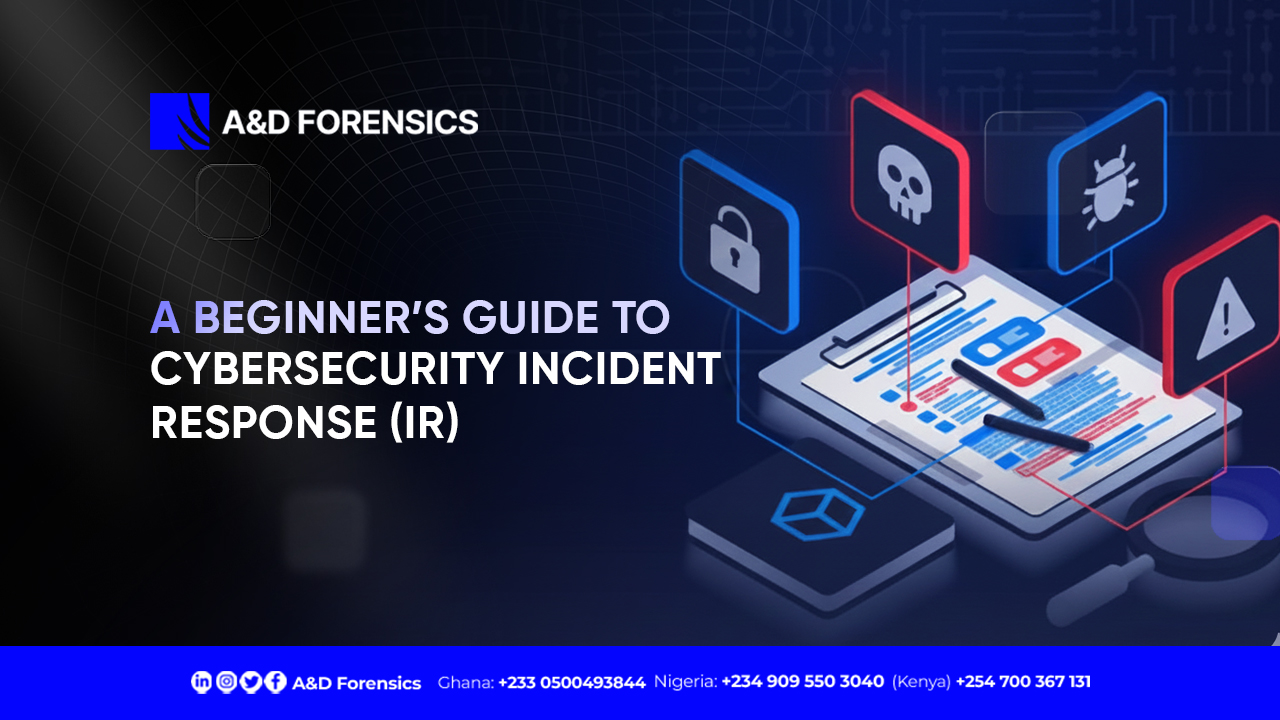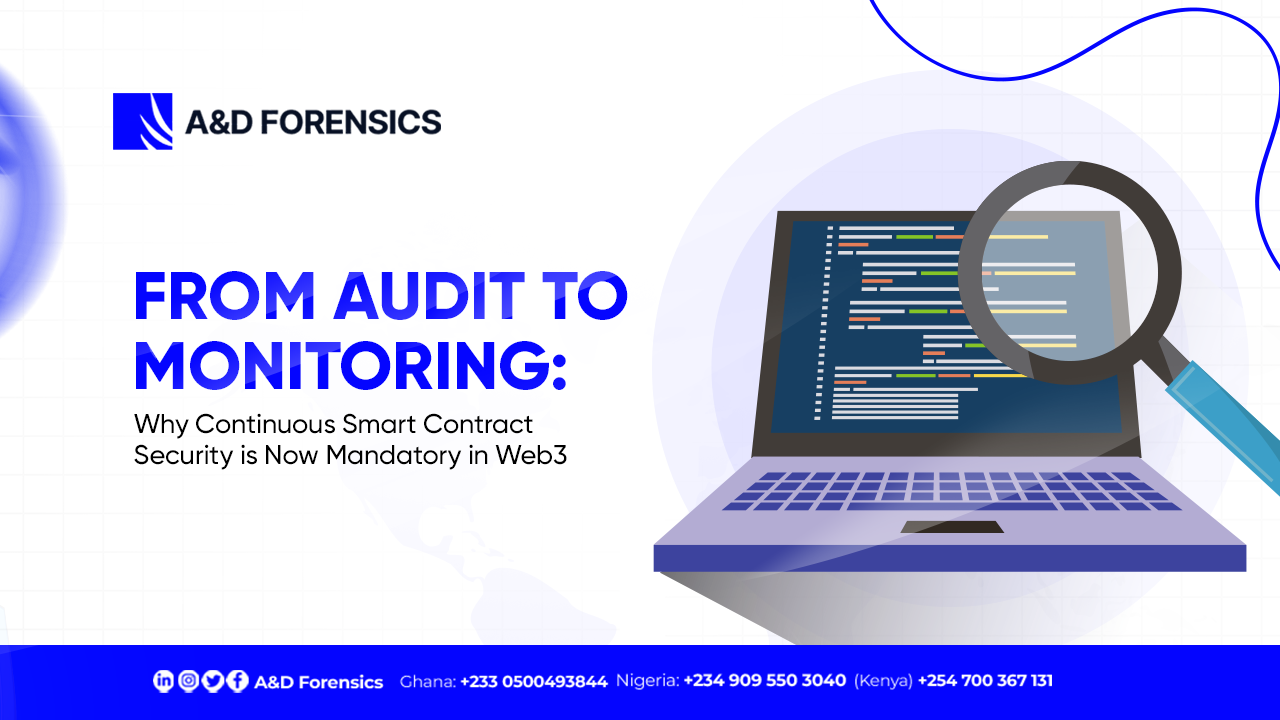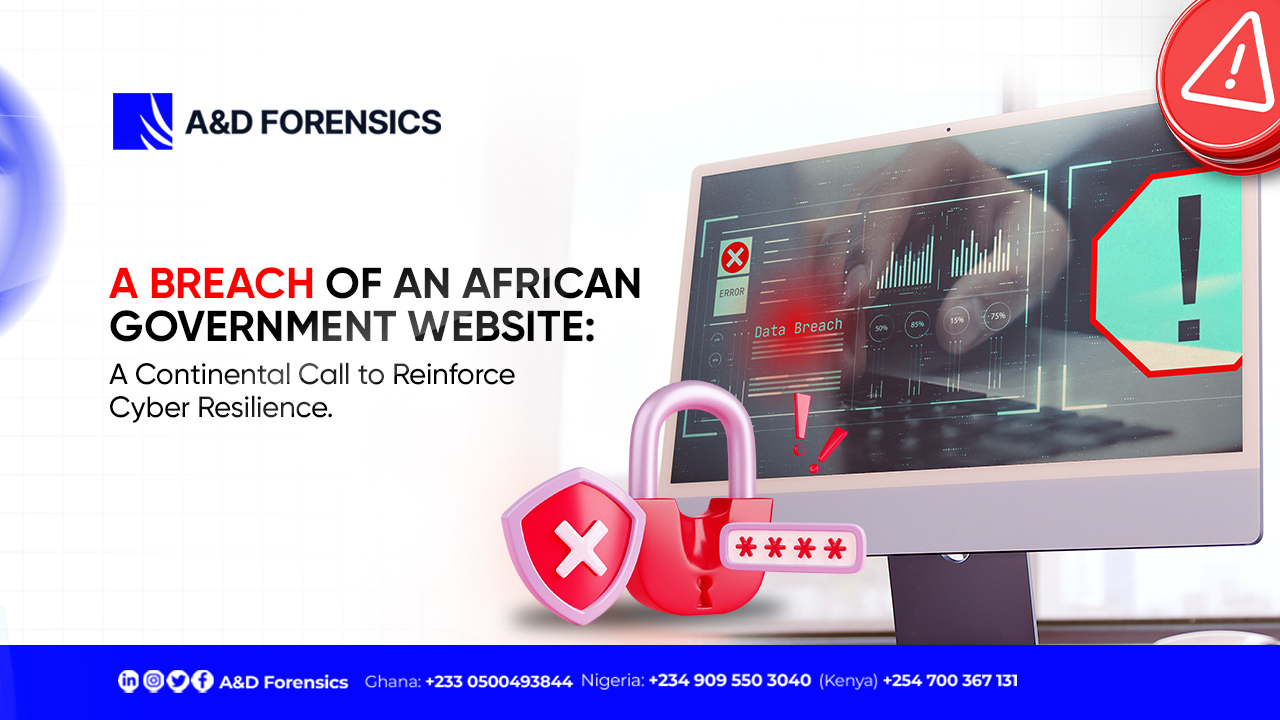Modern organizations face constant threats, including ransomware, phishing, insider abuse, and advanced persistent threats. Incident Response provides a structured method to detect, contain, and recover from these attacks. Today, we will concisely examine IR and highlight how it aligns with digital forensics to form a comprehensive response strategy.
What Is Incident Response
Incident Response is the coordinated process of detecting, analyzing, containing, eradicating, and recovering from cyber incidents such as data breaches, malware infections, unauthorized access, and system compromise.
A strong incident response program helps organizations:
• Stop attacks quickly
• Reduce damage
• Restore operations safely
• Prevent future incidents
Incident Response serves as the frontline defense when systems are compromised.
How DFIR Complements Incident Response
Incident Response (IR) focuses on managing the crisis, stopping the threat, and restoring systems.
Digital Forensics (DF) focuses on investigating how the incident occurred, what systems were affected, and what evidence remains.
Together, IR and DF provide a complete approach that enables rapid containment and accurate investigation.
Benefits of an Effective Incident Response Program
1. Faster Detection and Reduced Damage
Efficient IR minimizes downtime, limits data loss, and prevents the spread of malware.
2. Better Understanding of Threats
Forensic activities reveal the attacker’s entry method, actions taken, systems affected, and vulnerabilities exploited.
3. Verified and Preserved Evidence
Proper handling of logs and system artifacts ensures evidence remains intact and defensible.
4. Stronger Security Posture
Lessons learned help strengthen policies, monitoring rules, employee awareness, and system hardening.
5. Avoidance of Repeat Attacks
Root cause analysis enables organizations to close the security gaps used in previous attacks.
IR and DF: Key Differences
| Primary Role | Core Questions | |
| Incident Response | Stop the attack and restore operations | How do we contain the incident, and how do we recover |
| Digital Forensics | Investigate and analyze evidence | What happened, how it happened, and what was affected |
Simple analogy: Incident Response stops the bleeding, while Digital Forensics determines how the injury occurred.
Common Tools Used in Incident Response
Monitoring: Zeek, Suricata, OSQuery, and Wazuh
Acquisition and Triage: Velociraptor, KAPE, GRR Rapid Response
Forensics: Volatility, Autopsy, FTK Imager
Log Analysis: Splunk, ELK Stack, Graylog
Incident Response Platforms: TheHive, Cortex, MISP
These tools support monitoring, data collection, investigation, and case management.
Incident Response Lifecycle
Most organizations follow either the NIST or SANS framework. The IR process typically includes:
Preparation: Development of policies, communication procedures, tools, and trained teams.
Detection and Analysis: Monitoring alerts, logs, and reports to identify suspicious activity.
Containment: Short-term and long-term strategies to prevent further spread.
Eradication: Removal of malware, closure of exploited vulnerabilities, and disabling of compromised accounts.
Recovery: Restoration of systems and verification of system integrity.
Lessons Learned: Review of the incident to identify improvements and prevent recurrence.
How Digital Forensics Supports IR
Digital forensics uses a structured workflow, which includes
Identification
Preservation
Collection
Examination
Analysis
Documentation
Presentation
This ensures clarity, accuracy, and compliance during investigations.
Why Incident Response Is Essential
Cyberattacks are now inevitable. Incident Response is crucial because it reduces operational disruption, limits financial loss, preserves evidence for compliance, and strengthens long-term security. Skilled IR and DFIR professionals remain in very high demand.
A&D Forensics: Your Trusted Partner in Digital Risk Protection
At A&D Forensics, we understand that cyber threats are more than just technical challenges; they’re business risks that demand precision, speed, and trust. With our expertise in Digital Forensics, Incident Response, Blockchain Intelligence, and Regulatory Compliance, we’re uniquely positioned to help organizations across financial institutions, exchanges, and government agencies not only respond to incidents but also deeply understand and prevent them.
Partnering with us means gaining world-class DFIR capabilities, tailored to your needs and backed by leading industry tools. Let us help you safeguard your digital assets, preserve critical evidence, and build a resilient security posture that supports your growth with peace of mind.
Reach out today, and let us turn uncertainty into clarity.






